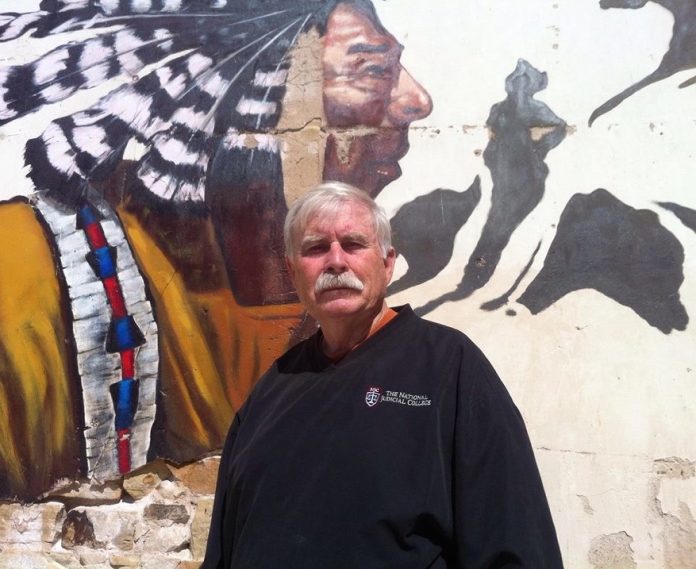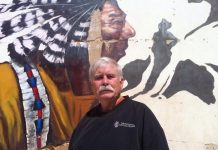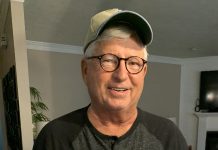WELCOME TO UKRAINE
GAVEL GAMUT
As I retrieved my luggage at Boryspil Airport outside Kyev, Ukraine the last week of December in 1999 I was surrounded by a jostling mob of drably dressed male cab drivers shouting for my attention in an amalgam of Ukrainian and Russian. I chose the aesthetically thin one who said “Best†in English. He loaded my large golf club caddy, my suitcase, and my backpack into his precarious-looking tiny Trabant vehicle with a cracked front windshield. Once we left the airport for Kyev I understood why the passenger side window was down; the roller was broken.
It was dark. It was bitterly cold. It was snowing. The trip to the “four-star†Hotel Dnipro in downtown Kyev took about half an hour and the driver did not want Ukrainian hryvnia (pronounced grievna) but American dollars. I later learned he probably would have been ecstatic with $5.00, but I paid him $30.00. He insisted on pulling my heavy golf club caddy into the lobby. The caddy was filled with lesson plans and Walmart trinkets for the Ukrainian judges that the National Judicial College had sent me there to teach. After I starting teaching classes, I found the Ukrainian judges were as thrilled to receive the plastic Harry Potter toys I had brought to give away as prizes as we Americans might have been to get expensive sports paraphernalia from our favorite team.Â
I checked in, gave up my passport with a twinge of indecision, and was directed to my room on the seventh floor. I was not given a key but was simply told I would be in room 702. When I got off the elevator, I found a woman wearing a large shawl sitting at a plain wooden desk in the cold hallway. I used my fingers to show her my room number and she opened an unlocked drawer containing the keys to all the rooms. She did not ask for I.D. She just handed me my key. I kept it in my possession for the whole two weeks I was there.
The door to my room reminded me of the pasteboard type construction used for cheap, portable closets in the 1950s. The room had a single metal bed, a small metal table with two metal folding chairs, and a window looking out onto an alley. There was a metal dowel rod, but no hangers, for hanging clothes, and the restroom had a commode, a sink and a tiny shower that I soon found spurted out green water. I spent two weeks on bottled water and a lot of soap.
The room was about four pages long and three paces wide. Once I moved my luggage in, I could barely turn around. I had hardly gotten in my room when the telephone rang and a female voice said, “Annaâ€. I responded, “No, you have the wrong room.†The woman said again, “Anna†then she added in a Ukrainian accent, “You want?†I was a little slow but finally got it. I said thank you but, “Noâ€. The cab ride and Anna were just the beginning of my introduction to the Ukrainian economy.Â
After I kind of unpacked, I decided to seek out a sandwich and a beer at the snack bar on the second floor. The bar was near the doors to a small casino where two uniformed dealers, one male one female, were behind black-jack tables. I was the only potential customer. I had the uncomfortable feeling I was the only game in town so I slowly backed away from the casino and went to the bar.
The bar was about twice the size of my room with a semi-circular formica topped bar and five stools like that one might find at a small-town drugstore counter. There were four small metal tables with armless metal chairs. When I entered the bar there was a male bartender who indicated in Ukrainian and with gestures, they had no food, only potato chips. There was a large man sitting on one of the stools and at one of the tables a thin woman, everyone was thin, sitting alone holding an unlit cigarette.
I ordered a bottle of beer and received one with an unreadable label. I took the bag of chips and the beer to an empty table and sat down. Almost immediately the woman moved to my table and sat near to me. She looked to be about thirty years old. She asked in English if I would buy her a beer. I was surprised at her excellent English and told her so. I did not respond to her request. She said she could tell I was American as she had once lived in New Jersey while going to college. After a few minutes of talking, she managed to convey to me what her second job was.
She said she was a medical doctor who was employed by the government but she had not received any pay for three months. After I explained I was not interested in her second job she just sort of smiled and pointed to the large man at the bar. She said, “That is my husband.†She said their only child, who was sixteen, was home alone. She said they could not afford more children, but wanted more. Then she began wiping at her eyes. I shook her husband’s hand and left.
The next day I went for a walk to the center of Kyev and found Maidan Nezalezhnosti (Independence Square). Two shabbily dressed men were staring at the non-operating fountain. In a rusty dented metal bucket, they had a few worn tools. It was very cold as they made a few half-hearted attempts to work on the fountain. Then one of them just threw down the bucket and they walked away. I assumed it was a real-life lesson in the old Russian/Ukrainian/socialist aphorism, “The government pretends to pay us and we pretend to work.â€
As I walked the main streets, occasionally but not often, an automobile would be flagged over by a uniformed police officer. The exchange of demanded money was not even attempted to be hidden.
The next two weeks as I taught approximately two hundred Ukrainian judges about America’s judicial system, I was told the government was supposed to pay each judge the equivalent of $350 dollars per month and provide living quarters for each judge’s family. However, the judges told me they were paid sporadically and had to share an apartment with other judges.
I did learn that many, but not all, of the Ukrainian judges despised Russia and that it was wise on my part to call the capital Kyev (KÄev), not Kiev (KÄ“ev) and when I said goodbye, I should use the Ukrainian “do pobachennya†not the Russian “do svidaniyaâ€.
I do not know how much American judicial knowledge I imparted to the Ukrainian judges, but about the only “honest†economy I did find in Kyev were the black markets set up in the courtyards of the huge churches. I frequented them several times and bought about $1,500 worth of marvelous local items such as Ukraine’s delicately painted eggs. I filled my then emptied golf club caddy with numerous wonderful mementos for the trip home.
As I was preparing to leave Ukraine for the U.S. via the airport, the uniformed customs officer asked me if I had anything to declare. I at first answered, “Yesâ€, and pointed to my golf club caddy. The customs official looked me in the eye and she said again, “Do you have anything to declare?†I said, “Noâ€, and brought the souvenirs home while leaving my American dollars in Ukraine.
I liked the Ukrainian people very much but living there is hard. I hope Russia does not invade, but if it does, I hope the Russians bring food and jobs and not just more misery. The Ukrainians have it tough enough already.
For more Gavel Gamut articles go to www.jamesmredwine.com
Or “Like/Follow†us on Facebook & Twitter at JPegOsageRanch





